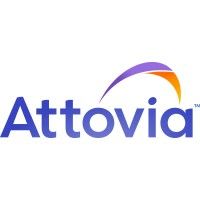Four biotechs raised a collective $389.3 million in venture capital financing on Thursday, from a €16-million seed round for preclinical bispecific developer Commit Biologics to a $182-million series C for mid-stage infectious diseases company Bluejay Therapeutics.The funding-heavy day is indicative of the year’s more permissive VC environment, as investors seem increasingly willing to commit to megarounds – which made up half of Thursday’s raises. In the first quarter, at least 18 companies raised $100 million or more in VC cash, compared with 13 for the year prior. For more analysis, see Vital Signs: Who missed the boat in the return of the megaround.Bluejay progresses HepD treatmentThe day’s biggest round went to Bluejay, whose $182-million financing was co-led by Frazier Life Sciences and a life science-focused institutional investment firm. Additional new and existing investors also participated, including RA Capital Management, T. Rowe Price, Wellington Management, Novo Holdings, RiverVest Venture Partners, Octagon Capital, Arkin Bio Ventures, HBM Healthcare Investments and Unicorn Capital.The company is developing BJT-778, an antibody against hepatitis B surface antigen to treat chronic hepatitis D (HDV). The experimental treatment is in Phase I/II testing and has PRIME designation from the European Medicines Agency.Last year, Bluejay reported data from a Phase Ia, single-ascending dose study in healthy volunteers and patients with HDV showing BJT-778 was safe, tolerable, and had no dose-limiting toxicities. Previously, Bluejay raised a $41-million series B in 2022.Attovia nears the clinicThe second megaround went to Attovia Therapeutics, who raised $105 million in a series B to bring two of its novel biologics to the clinic.The round, which brings the biotech’s total funding since launching last year to $165 million, was led by Goldman Sachs Alternatives. New investors Cormorant Asset Management, Nextech Ventures, Redmile Group, EcoR1 Capital, Marshall Wace, and Logos Capital also participated in the financing, as did existing investors Frazier Life Sciences, venBio, and Illumina Ventures.Attovia is developing ATTOBODIES: biparatopic biologics that use spatial positioning technology to attain picomolar binding affinity. According to the company, its ATTOBODY platform can be used to design multispecific biologics with tunable half-lives.Lead candidate ATTO-1310 is a long half-life anti-IL31 biologic expected to start clinical testing for atopic dermatitis by year-end. Attovia plans to submit an IND next year for its second programme, ATTO-002. The bispecific targets IL31 and IL13, and is in development for a range of immune-mediated diseases.Aardvark advances hunger-satiating candidateWith a two-pronged strategy targeting a genetic disease and obesity, Aardvark Therapeutics raised $85 million in a series C round led by Decheng Capital to progress its lead candidate, ARD-101.The oral TAS2R pan-agonist stimulates enteroendocrine cells in the digestive tract to release gut-peptide hormones such as GLP-1 and cholecystokinin that trigger gut-brain signalling to mediate hunger.Its lead indication is hyperphagia, an extreme and unrelenting hunger symptom experienced by patients with Prader-Willi Syndrome (PWS), for which there is no approved treatment. Last year, Aardvark reported results from a trio of Phase II trials showing ARD-101 reduced hunger in patients with PWS and obesity. Thursday’s financing will enable the biotech to finish its clinical programme for the compound in hyperphagia and demonstrate ARD-101's complementary mechanism of action to GLP-1s to treat obesity. New investors Cormorant Asset Management, Surveyor Capital, SymBiosis, Tetragon Financial Group, Walleye Capital, Laurion Capital Management, LG Technology Ventures, Cantor Ventures, Silver Arc Private Capital, and the Prader-Willi Syndrome Association also participated in the series C, as did existing investors the Foundation for Prader-Willi Research and Vickers Venture Partners. The latter led Aardvark’s $29-million B round in 2021.Commit targets the complement systemWith backing from Bioqube Ventures and Novo Holdings, Danish biotech Commit debuted with €16 million ($17.3 million) in seed funding to build out its Bispecific Complement Engaging (BiCE) platform. The Aarhus University spinout is designing molecules that combine single-domain antibodies that engage C1q, the starting point for the complement activation cascade, with an antibody that binds to a cellular target. The complement system plays a role in pathogen defence by recruiting and activating both innate and adaptive immune cells, and can directly lead to cell lysis. According to Commit, current antibody therapeutics ineffectively engage with C1q, limiting complement-mediated cytotoxicity and other complement mediated effector functions. The BiCE platform can be used to enhance a variety of T-cell directed therapies – which are often limited by toxicities and T-cell exhaustion – by broadening their therapeutic index and boosting efficacy to treat cancer and autoimmune diseases.








